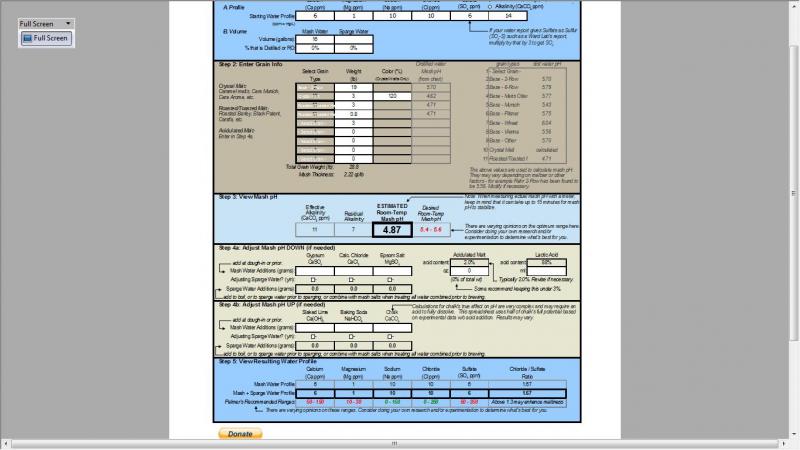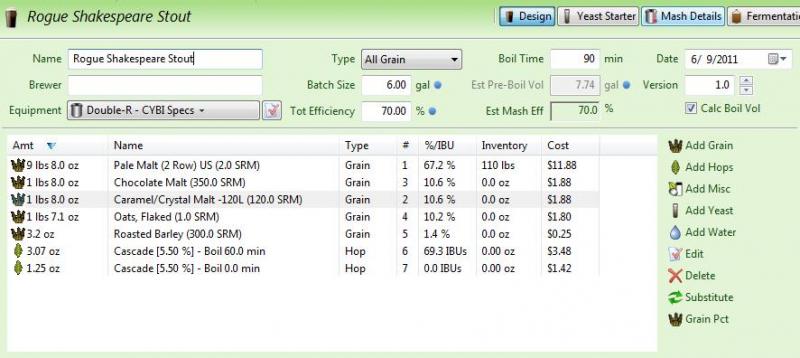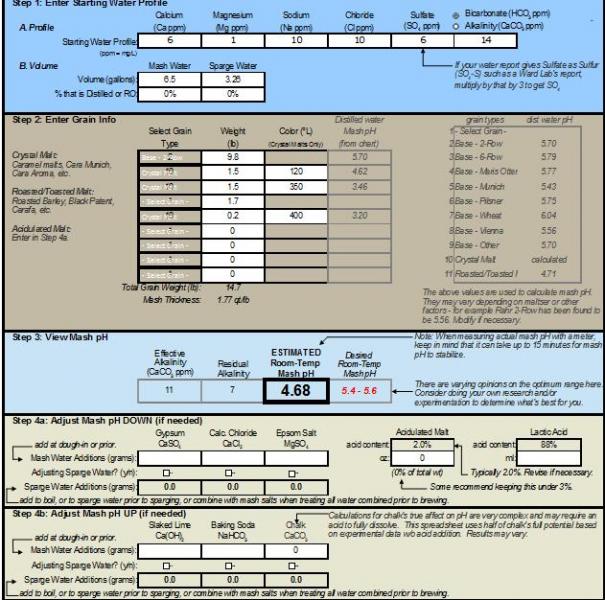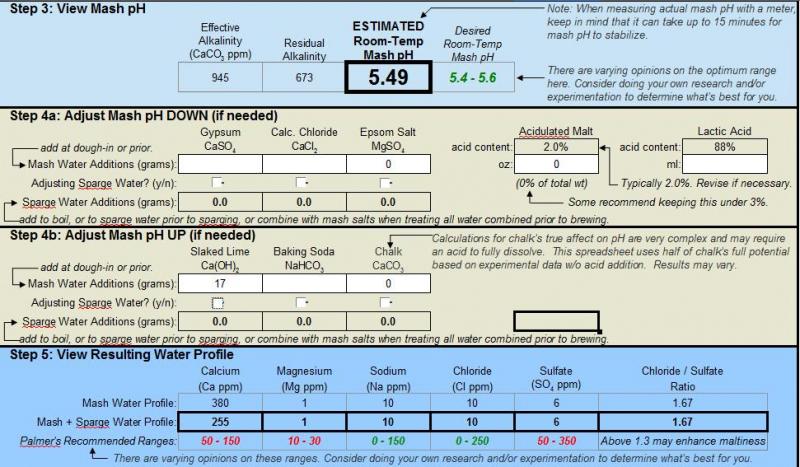Double-R
Well-Known Member
Using Ez water 3.0; The only way to get my Estimated pH in range id to add 45 grams on baking soda. Is this a insane amount.?.I don't have slaked lime.
I want to treat all the water mash+sparge "16" gallons. Gypsum and Epsom was added to get into recommended "Range". Going toward a American style stout.
Starting Water (ppm):
Ca: 6
Mg: 1
Na: 10
Cl: 10
SO4: 6
HCO3: 14
Mash / Sparge Vol (gal): 16 / 0
RO or distilled %: 0% / 0%
Total Grain (lb): 28.8
Adjustments (grams) Mash / Boil Kettle:
CaSO4: 15 / 0<<<<<< Gypsum
CaCl2: 0 / 0
MgSO4: 6 / 0<<<<<< Epsom salt
NaHCO3: 45 / 0<<<<<< Baking soda
CaCO3: 0 / 0
Lactic Acid (ml): 0
Sauermalz (oz): 0
Mash Water / Total water (ppm):
Ca: 62 / 62
Mg: 10 / 10
Na: 213 / 213
Cl: 10 / 10
SO4: 183 / 183
Cl to SO4 Ratio: 0.05 / 0.05
Alkalinity (CaCO3): 453
RA: 403
Estimated pH: 5.45
(room temp)
I want to treat all the water mash+sparge "16" gallons. Gypsum and Epsom was added to get into recommended "Range". Going toward a American style stout.
Starting Water (ppm):
Ca: 6
Mg: 1
Na: 10
Cl: 10
SO4: 6
HCO3: 14
Mash / Sparge Vol (gal): 16 / 0
RO or distilled %: 0% / 0%
Total Grain (lb): 28.8
Adjustments (grams) Mash / Boil Kettle:
CaSO4: 15 / 0<<<<<< Gypsum
CaCl2: 0 / 0
MgSO4: 6 / 0<<<<<< Epsom salt
NaHCO3: 45 / 0<<<<<< Baking soda
CaCO3: 0 / 0
Lactic Acid (ml): 0
Sauermalz (oz): 0
Mash Water / Total water (ppm):
Ca: 62 / 62
Mg: 10 / 10
Na: 213 / 213
Cl: 10 / 10
SO4: 183 / 183
Cl to SO4 Ratio: 0.05 / 0.05
Alkalinity (CaCO3): 453
RA: 403
Estimated pH: 5.45
(room temp)






